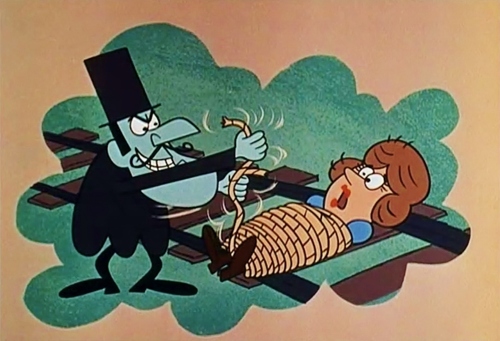This Chronicle column is fascinating because, although I radically disagree with some of her presuppositions and conclusions, it seems obvious that we should all be able to come to a more sensible decision about where to draw the lines–and how far to imagine ourselves deterministic puppets in the hands of the nominally powerful:
There was more, but my eye was struck by the word “survivor,” which was repeated several times. Wouldn’t the proper term be “accuser”? How can someone be referred to as a survivor before a finding on the accusation—assuming we don’t want to predetermine the guilt of the accused, that is. At the risk of sounding like some bow-tied neocon columnist, this is also a horrifying perversion of the language by people who should know better. Are you seriously telling me, I wanted to ask the Title IX Committee, that the same term now encompasses both someone allegedly groped by a professor and my great-aunt, who lived through the Nazi death camps? I emailed an inquiry to this effect to the university’s general counsel, one of the email’s signatories, but got no reply.
For the record, I strongly believe that bona fide harassers should be chemically castrated, stripped of their property, and hung up by their thumbs in the nearest public square. Let no one think I’m soft on harassment. But I also believe that the myths and fantasies about power perpetuated in these new codes are leaving our students disabled when it comes to the ordinary interpersonal tangles and erotic confusions that pretty much everyone has to deal with at some point in life, because that’s simply part of the human condition.
(source: Sexual Paranoia Strikes Academe – The Chronicle Review – The Chronicle of Higher Education)

This paragraph, I think is especially telling. Do read the column, because her examples are helpful:
But what do we expect will become of students, successfully cocooned from uncomfortable feelings, once they leave the sanctuary of academe for the boorish badlands of real life? What becomes of students so committed to their own vulnerability, conditioned to imagine they have no agency, and protected from unequal power arrangements in romantic life? I can’t help asking, because there’s a distressing little fact about the discomfort of vulnerability, which is that it’s pretty much a daily experience in the world, and every sentient being has to learn how to somehow negotiate the consequences and fallout, or go through life flummoxed at every turn.
(source: Sexual Paranoia Strikes Academe – The Chronicle Review – The Chronicle of Higher Education)
And the “didn’t aspire to reach quite as deeply into our lives” element, here, is right on. The proliferation of “public” secular institutions that claim increasing sway over our “private” lives, exporting whole chunks of ordinary social decision-making into the hands of unaccountable bureaucrats and rent-seeking lawyers, is a pathology that needs facing.
The question, then, is what kind of education prepares people to deal with the inevitably messy gray areas of life? Personally I’d start by promoting a less vulnerable sense of self than the one our new campus codes are peddling. Maybe I see it this way because I wasn’t educated to think that holders of institutional power were quite so fearsome, nor did the institutions themselves seem so mighty. Of course, they didn’t aspire to reach quite as deeply into our lives back then. What no one’s much saying about the efflorescence of these new policies is the degree to which they expand the power of the institutions themselves. As for those of us employed by them, what power we have is fairly contingent, especially lately. Get real: What’s more powerful—a professor who crosses the line, or the shaming capabilities of social media?
(source: Sexual Paranoia Strikes Academe – The Chronicle Review – The Chronicle of Higher Education)
But what “sense of self” could this be? It will need to be upheld by something other than mere self-assertion, or it will collapse again into alienation and determinism. Perhaps no question is more pressing, today, than what sort of philosophical anthropology we are content to embrace and teach, and upon what we can build such a vision of human being.